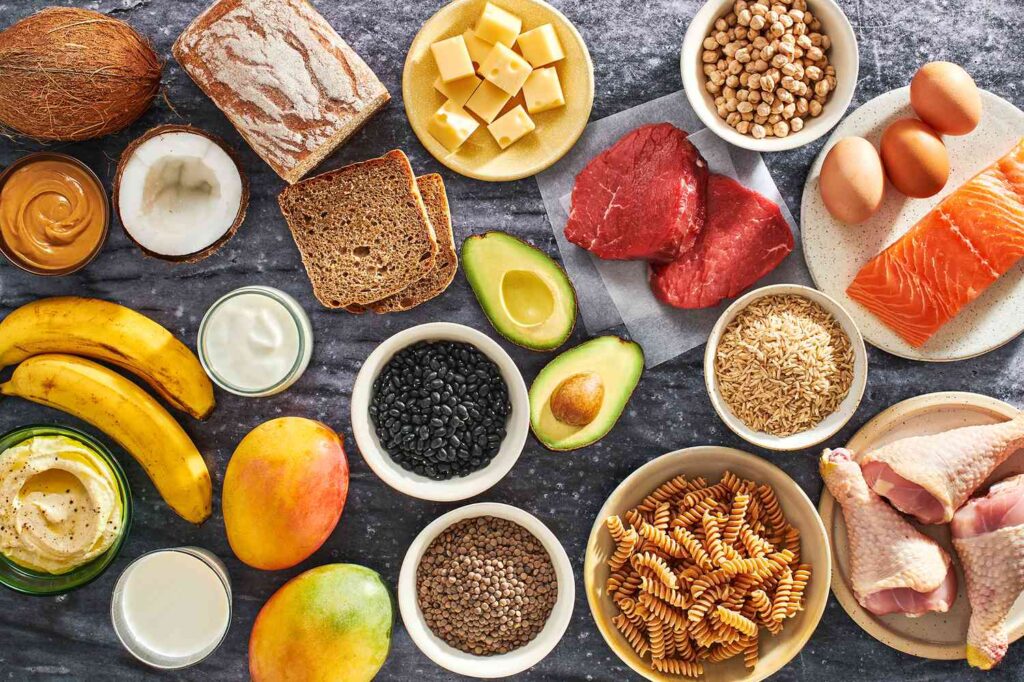When a person’s weight is acceptable for their height, they are considered to have a healthy body weight. Doctors will compute a body mass index (BMI) assessment of a person’s body fat to determine whether they are a healthy weight (BMI).- Need to Gain Weight
- You may be at risk for weight-related illnesses such as heart disease, diabetes, hypertension, gout, and asthma if your BMI is between 25 and 29.9 and your body fat-to-muscle ratio is high. – Need to Gain Weight
- Additionally, it’s critical to keep in mind that your BMI weight category is not a reliable indicator of your general health. Even if you fall within a reasonable weight range, you might not be healthy. You’re not inherently unhealthy if you’re underweight or overweight, either.
The Root causes of Being underweight | Need to Gain Weight
- Food addictions: This includes the severe mental illness anorexia nervosa.
- Thyroid issues: Hyperthyroidism, an overactive thyroid, can increase metabolism and result in unhealthful weight loss.
- Celiac disease is the most severe instance of gluten sensitivity. Over the 20th and 21st centuries, celiac disease has become more common overall.
- Diabetes: Uncontrolled diabetes, especially type 1, can cause drastic weight loss.
- Cancer can induce a hypercatabolic state in the body, which causes a rise in energy consumption. The amount of weight loss can be influenced by a person’s cancer type and the severity of their weight loss. – Need to Gain Weight
- Infections: A few infections might cause a person to become dangerously underweight. Parasites, TB, and HIV infection are examples of this.
- High levels of exercise. If you participate in sports, you certainly already understand how regular exercise may affect your body weight. High levels of physical activity can, however, also be a sign of a dynamic personality or active work. You may burn more calories if you move around a lot than if you sit more (inactive).
- Medicines. Some pharmaceutical drugs have the negative effects of weight loss and nausea. Some medical procedures, including chemotherapy, might decrease appetite and make weight loss due to illness worse.

Try these healthy weight-gaining strategies if you’re underweight:
- More frequent eating:You might feel fuller more quickly if you’re underweight. Instead of two or three larger meals throughout the day, eat five or six smaller ones. Need to Gain Weight
- Opt for nutrient-dense foods: Choose whole-grain foods such as bread, pasta, cereals, fruits, vegetables, dairy products, lean protein sources, nuts, and seeds as part of a balanced diet. The calculator says that if you want to gain weight gradually and continuously, you should try to eat 300–500 calories more each day than you burn. If you want to gain weight quickly, aim for roughly 700–1,000 more calories per day than your maintenance range. Keep in mind that calorie calculators are simply that—calculations. Depending on your requirements, every day, add or subtract a few hundred calories.- Need to Gain Weight
- When drinking, be careful. Some people find that drinking beverages before meals suppress their appetite. If so, drinking more caloric beverages in addition to a meal or snack might be preferred. Those who choose to drink 30 minutes after a meal as opposed to during it may discover success. Need to Gain Weight
- Take action. The best way to increase muscle is through resistance exercise since it develops muscular tissue that promotes healthy weight gain. At least two to three days a week should be dedicated to resistance exercise. A minimum of one to two strength training exercises should be performed for each muscle group. Because the heart is a muscle that has to be worked out, cardiovascular activity like jogging, biking, or swimming shouldn’t be neglected. – Need to Gain Weight

Conclusion
Using BMI measures has certain drawbacks while being popular and useful: BMI can underestimate body fat in older people who have lost muscle mass as a result of ageing and overestimate it in people with more muscular builds, such as sports. When a person weighs more than is considered healthy for their height, they are said to be overweight.




Trackbacks/Pingbacks